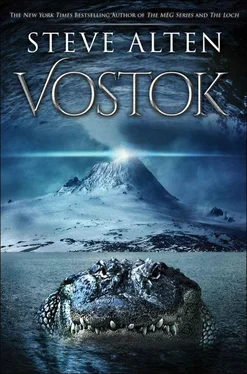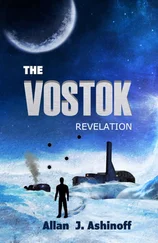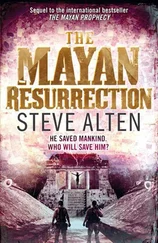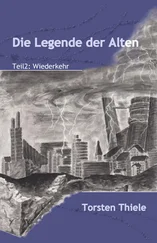“Doc, we got a serious problem. Losing the umbilical means we’re self-contained. If I don’t shut down the Valkyries soon, there won’t be enough juice left to make the ascent.”
“Do it.”
Ming’s voice crackled over our headphones. “I think that should be my decision, Zachary.”
“Actually, it’s mine,” Ben said, powering down the lasers.
Sensing the threat was gone, the two beasts grew more aggressive. Surfing the current, they attempted to snatch us in their awful jaws, each attempt inching closer to our hull.
“Doc, I can’t hold them off!”
My mind raced. They should have backed off by now. Why aren’t they tiring? Oh, hell . “Ben, get us out of this current. We need to wear them out.”
He pulled back hard on his joystick, bringing us up and out of the river flow.
Propelled by the seventeen-knot current, the two eels shot past us. I picked them up on sonar six hundred yards to the north, registering the disturbance as they left the flow to reengage the hunt.
Ben wasted no time in changing course, taking us on a westerly heading at twenty-five knots.
The creatures pursued us for close to two minutes before the costly expenditure of energy forced them to give up the chase. They faded into white noise as they headed south, no doubt to feed upon the remains of their mother.
“We lost them.”
“Thank God. So that’s what you dealt with in Loch Ness?”
“No, not quite. Ben, we’re on the wrong heading. We need to be on zero-three-seven.”
Ben banked the Barracuda hard to starboard, resuming the northeasterly course that would bring us to the extraction point.
Ming’s voice crackled loudly over my headphones. “Zachary, this is incredible beyond our wildest expectations. Did you ever imagine we’d discover such creatures in Vostok?”
Ben mumbled, “If he did, do you think he’d be here?”
Ming ignored him. “Zachary, how could anything so large have survived down here?”
I laid my head back and closed my eyes, my nerves still jumpy. “Humans adapt to new environments by using our brains; animals adapt by evolving anatomically. When Antarctica froze over during the Miocene age, it was a gradual process, not a mass extinction event. Vostok has air and water—”
“And five thousand pounds per square inch of water pressure,” said Ben, who did a double-take, squinting to read his atmospheric pressure gauge. “Correction. Make that thirty-nine hundred pounds of pressure. How’d that happen?”
“It doesn’t matter. Eels are fish, and water pressure doesn’t affect fish. Eels are also hardy creatures. No doubt they’ve become apex predators in this realm. The question is what else is out there that filled the gap between chemosynthetic bacteria and giant eels. Obviously there are still key pieces of the Vostok ecosystem that we haven’t seen.”
“What good is seen without evidence,” Ming quipped. “The videocameras missed everything. No one is going to believe what we discovered if we cannot prove it.”
“We’ve got more pressing problems,” Ben said, ascending the sub until once more we were plowing the lake’s surface. “When we lost our umbilical cord, we not only lost contact with Vostok Command, we lost our main power supply. We’ve got nineteen hours of air left, and at least five of them have to be used during our ascent. That leaves us fourteen hours to locate a section of Vostok where the bottom of the ice sheet and the lake’s surface are within a ship’s length of one another.”
The weight of Ben’s words sunk in. For the next thirty minutes we remained quiet, conserving our air supply while we watched the mist overhead, hoping for an ice ceiling to appear.
Instead, it started to rain.
“Raindrops keep fallin’ on my head,
But that doesn’t mean my eyes will soon be turnin’ red,
Cryin’s not for me …
’Cause I’m never gonna stop the rain by complainin’
Because I’m free… nothin’s worryin’ me.”
— B.J. Thomas
It began as scattered droplets and progressed steadily as we advanced on our northeasterly course. The rain, of course, was coming from the ice sheet above our heads. The question was: why was it melting?
“Surface water temperature is forty-nine degrees,” Ming called out. “We must be passing over a geothermal vent field. Captain, take us back down to the bottom. If the vents are there, then we must be in the wrong area.”
Ben dove the sub, and we officially entered the Miocene.
Before I could react to the blizzard of objects appearing on my sonar screen, a swarm of anchovies glittered silver in our lights, whipping themselves into a frenzied six-story tornado.
My heart palpitated a moment later when sonar detected a massive object rising at us from two hundred feet below the surface. Before Ben could swerve out of the way the water was teeming with salmon. Thousands of seven- to eight-foot-long scaly missiles pounded the sub like hail as they raced to dine at the all-you-can-eat anchovy buffet, their upturned mouths widening to reveal gruesome needle-sharp teeth.
We waited until the deluge of fish passed before continuing our descent. The deeper we ventured, the larger the species seemed to be. Albino sunfish reflected our lights like miniature moons, and tarpon as large as groupers swerved around our craft. A toadfish pressed against the acrylic glass, blocking my forward view. Its large, flat head was as big as a basketball, its wide mouth filled with blunt teeth, its slime-covered body tapering back to a plump belly and fan-like pectoral fins.
Dozens of blips appeared on my sonar screen and in our lights giant stingrays flew past us on majestic twenty-foot wings, the magnificent albino creatures swarming to feed upon a wounded sunfish. One of these not-so-gentle giants swooped in and snatched the toadfish in its vicious bat-like mouth, its pale body pressing against the pod as its sharp triangular teeth skewered its meal. For a nerve-racking moment, the stingray’s wingspan enveloped the Barracuda , pitching us hard to port before it swam off.
Ming delighted as she documented our descent. Ben swore. As for me, I could only gaze in wonderment at this preserved time capsule from the past, the marine biologist in me questioning whether these animals represented true Miocene species that existed in Antarctica fifteen million years ago or whether we were looking at anatomical variations that were a direct result of adapting to the extreme conditions of this uniquely isolated environment.
The creative right side of my brain told my left, logical side to shut up and enjoy the show.
The enjoyment, however, turned to trepidation when the first sharks appeared. Using my night-vision glasses, I identified two different species of requiem predators. The first Carcharhinid was a twelve-foot oceanic whitetip. The second brute was a bull shark that was twice the size and girth of the Barracuda .
While both of these species had a reputation for following freshwater rivers inland to inhabit lakes, it was still shocking to find these ocean dwellers thriving in Vostok.
Ming called out the temperature as we passed twelve hundred feet. “Fifty-three degrees.”
That settled my shark dilemma. It was not just Antarctica, after all, that had frozen millions of years ago; the oceans surrounding the continent had also incurred a precarious drop in temperature. A river bleeding a warm-water current into coastal waters would have lured many ocean species.
I shuddered to think what else might be down here.
I got an answer as we passed sixteen hundred feet. A thousand shadows materialized all around us in every direction, becoming bulbous eyes and jaws that unhinged, and bizarre fish with needle-sharp teeth, many of which cast bioluminescent lanterns that dangled before their open mouths like bait. These were Vostok’s deepwater creatures, Miocene mutations forced to adapt to the darkness and cold.
Читать дальше












